Filter by
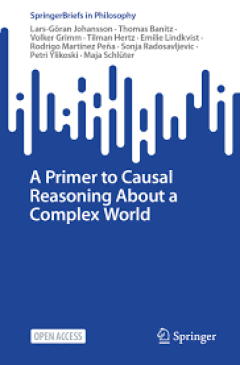
A Primer to Causal Reasoning About a Complex World
This open access book is about causal thinking and the use of causal language, with a focus on introducing philosophical ideas about causation to students and researchers of Social-Ecological Systems (SES). It takes a systematic approach to three central topics: the meanings of different causal expressions, sufficiency of evidence for inferences from observations to causal relations, and how t…
- Edition
- -
- ISBN/ISSN
- 978-3-031-59135-8
- Collation
- XII, 150
- Series Title
- SpringerBriefs in Philosophy (BRIEFSPHILOSOPH)
- Call Number
- 501 JOH p

Sisters of the Brotherhood: Alienation and Inclusion in Learning Philosophy
This open access book explores the gendered reality of learning philosophy at the university level, investigating the ways in which women and minority students become alienated from the social practices of a male-dominated field, and examining pedagogical solutions to this problem. It covers the roles and the interactions of the professor and student in the following ways: (1) the historical si…
- Edition
- -
- ISBN/ISSN
- 978-3-031-16670-9
- Collation
- XI, 97
- Series Title
- SpringerBriefs in Philosophy (BRIEFSPHILOSOPH)
- Call Number
- 100 RUO s

The Limits of Art : On Borderline Cases of Artworks and their Aesthetic Prope…
This open access book is about exploring interesting borderline cases of art. It discusses the cases of gustatory and olfactory artworks (focusing on food), proprioceptive artworks (dance, martial arts, and rock climbing qua proprioceptive experiences), intellectual artworks (philosophical and scientific theories), as well as the vague limits between painting and photography. The book focus…
- Edition
- -
- ISBN/ISSN
- 978-3-030-54795-0
- Collation
- IX, 57
- Series Title
- SpringerBriefs in Philosophy (BRIEFSPHILOSOPH)
- Call Number
- 700 BEN l
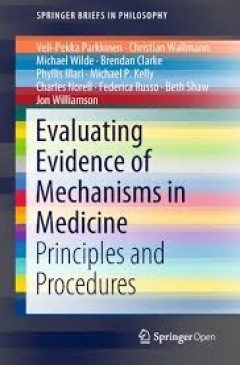
Evaluating Evidence of Mechanisms in Medicine : Principles and Procedures
This book is open access under a CC BY license. This book is the first to develop explicit methods for evaluating evidence of mechanisms in the field of medicine. It explains why it can be important to make this evidence explicit, and describes how to take such evidence into account in the evidence appraisal process. In addition, it develops procedures for seeking evidence of mechanisms, fo…
- Edition
- -
- ISBN/ISSN
- 978-3-319-94610-8
- Collation
- XVIII, 125
- Series Title
- Evaluating Evidence of Mechanisms in Medicine : Principles and Procedures
- Call Number
- 610 PAR e
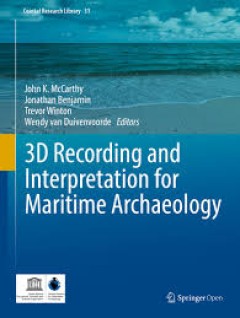
3D Recording and Interpretation for Maritime Archaeology
This open access peer-reviewed volume was inspired by the UNESCO UNITWIN Network for Underwater Archaeology International Workshop held at Flinders University, Adelaide, Australia in November 2016. Content is based on, but not limited to, the work presented at the workshop which was dedicated to 3D recording and interpretation for maritime archaeology. The volume consists of contributions from …
- Edition
- -
- ISBN/ISSN
- 978-3-030-03635-5
- Collation
- XII, 237
- Series Title
- Coastal Research Library (COASTALRL, volume 31)
- Call Number
- 900 THR
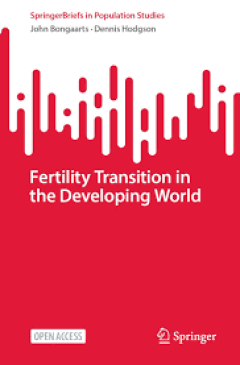
Fertility Transition in the Developing World
This open access book provides an overview and analysis of the causes and consequences of the massive and highly consequential transition in reproductive behaviour that occurred in Asia, Latin America, and Africa since the mid-20th century. In the 1950s contraceptive use was rare and women typically spend most of their reproductive years bearing and rearing children. By 2020 fertility and contr…
- Edition
- -
- ISBN/ISSN
- 978-3-031-11840-1
- Collation
- XI, 144
- Series Title
- SpringerBriefs in Population Studies (BRIEFSPOPULAT)
- Call Number
- 334 BON f
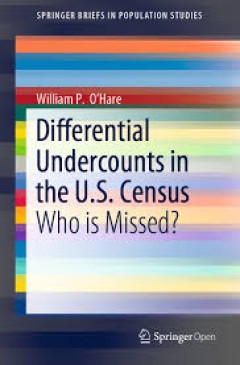
Differential Undercounts in the U.S. Census : Who is Missed?
This open access book describes the differences in US census coverage, also referred to as “differential undercount”, by showing which groups have the highest net undercounts and which groups have the greatest undercount differentials, and discusses why such undercounts occur. In addition to focusing on measuring census coverage for several demographic characteristics, including age, gender…
- Edition
- -
- ISBN/ISSN
- 978-3-030-10973-8
- Collation
- XI, 167
- Series Title
- SpringerBriefs in Population Studies (BRIEFSPOPULAT)
- Call Number
- 334 OHA d
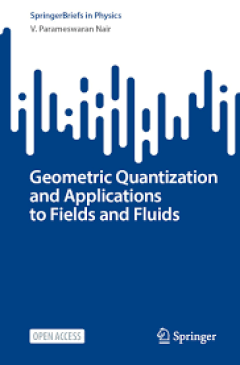
Geometric Quantization and Applications to Fields and Fluids
This open access book explains geometric quantization from a physicist’s perspective. After presenting the general formalism, it delves into several examples reflecting current research interests in high-energy physics and condensed matter physics. Applications explore Chern-Simons theory, theta vacuum, the Hall effect, fluid dynamics, and elements of noncommutative geometry. The content i…
- Edition
- -
- ISBN/ISSN
- 978-3-031-65801-3
- Collation
- X, 129
- Series Title
- SpringerBriefs in Physics (SpringerBriefs in Physics)
- Call Number
- 530 NAI g

Experimental Techniques in Nuclear and Particle Physics
I have been teaching courses on experimental techniques in nuclear and particle physics to master students in physics and in engineering for many years. This book grew out of the lecture notes I made for these students. The physics and engineering students have rather different expectations of what such a course should be like. I hope that I have nevertheless managed to write a book that can sa…
- Edition
- -
- ISBN/ISSN
- 978-3-642-00829-0
- Collation
- X, 306
- Series Title
- -
- Call Number
- 530 TAV e

Values for a Post-Pandemic Future
This open access book shows how value sensitive design (VSD), responsible innovation, and comprehensive engineering can guide the rapid development of technological responses to the COVID-19 crisis. Responding to the ethical challenges of data-driven technologies and other tools requires thinking about values in the context of a pandemic as well as in a post-COVID world. Instilling values must …
- Edition
- -
- ISBN/ISSN
- 978-3-031-08424-9
- Collation
- X, 250
- Series Title
- Philosophy of Engineering and Technology (POET, volume 40)
- Call Number
- 600 VAL
 Computer Science, Information & General Works
Computer Science, Information & General Works  Philosophy & Psychology
Philosophy & Psychology  Religion
Religion  Social Sciences
Social Sciences  Language
Language  Pure Science
Pure Science  Applied Sciences
Applied Sciences  Art & Recreation
Art & Recreation  Literature
Literature  History & Geography
History & Geography